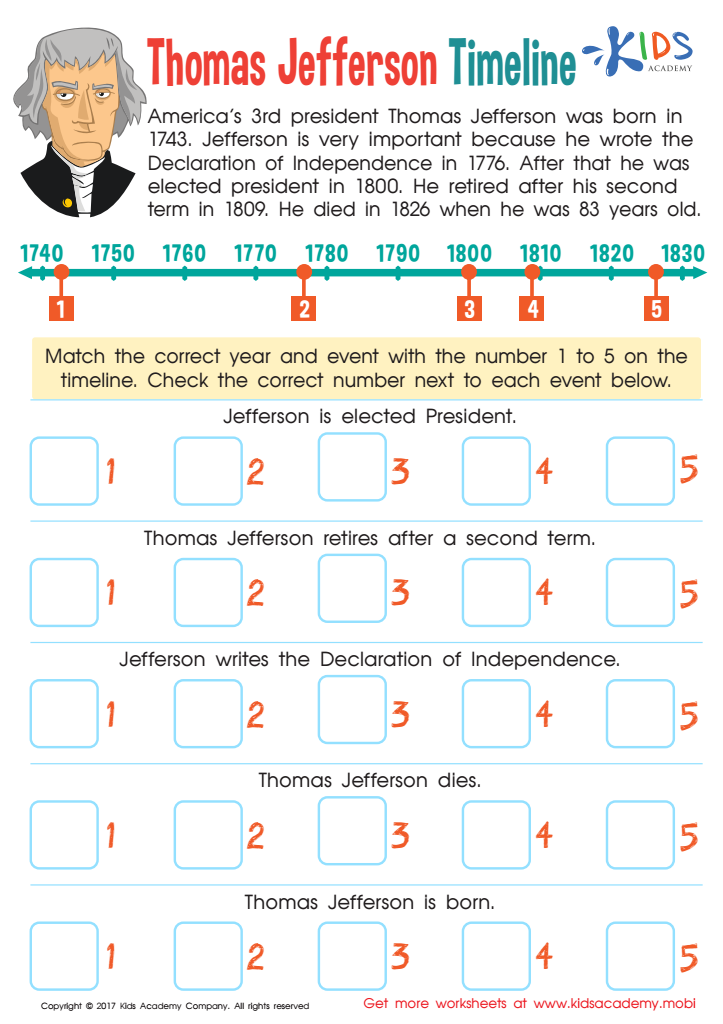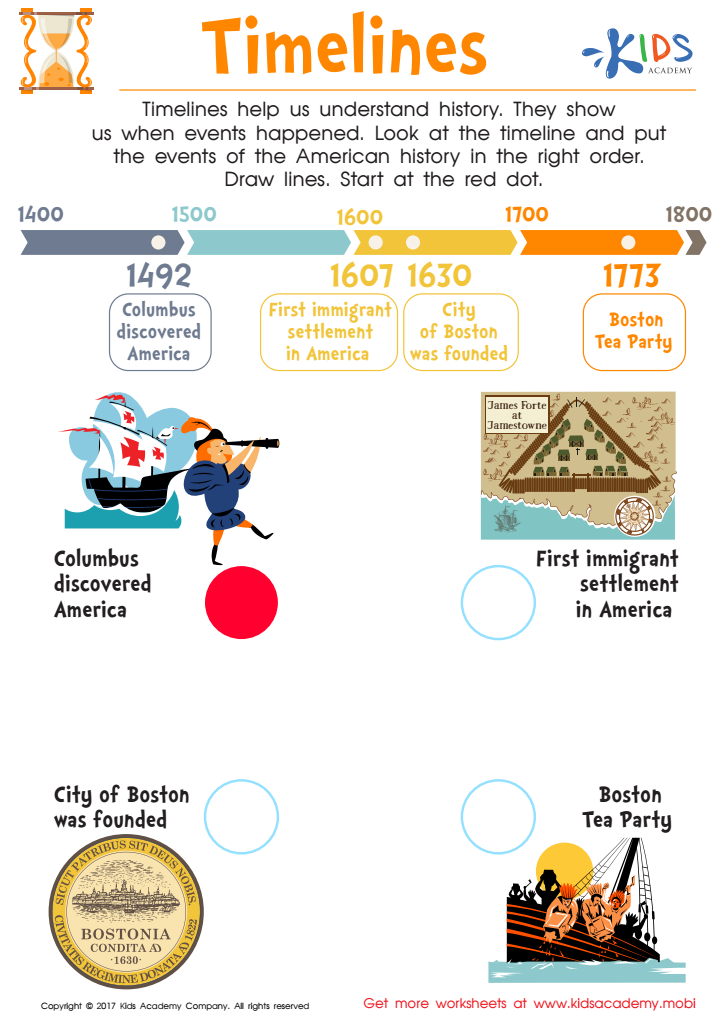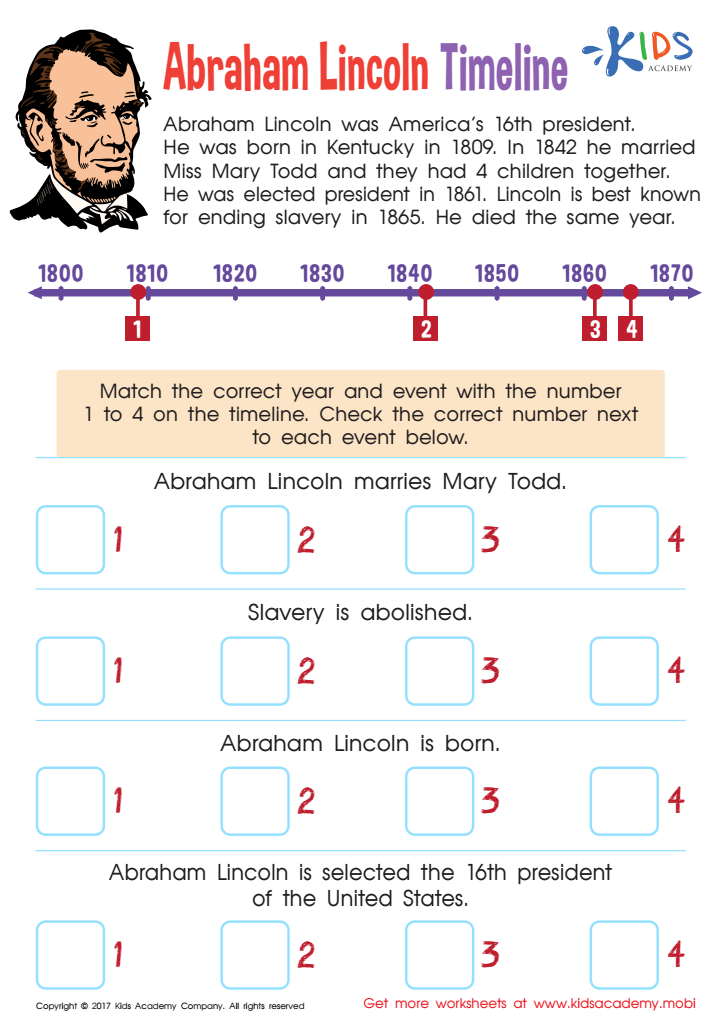Understanding timelines Normal History Worksheets for Ages 4-9
3 filtered results
-
From - To
Explore "Understanding Timelines: History Worksheets for Ages 4-9", designed to make history engaging and accessible for young learners. Our printable worksheets help children grasp the concept of timelines, enhancing their ability to sequence events and understand temporal relationships. Tailored for 4 to 9-year-olds, these activities foster critical thinking and chronological awareness, crucial skills in early education. With vibrant visuals and age-appropriate content, our worksheets transform learning history into a fun, interactive experience. Perfect for educators and parents, they support lesson planning and home learning all while building foundational understanding in young historians.


Thomas Jefferson Timeline Worksheet


American History Timeline Worksheet


Abraham Lincoln Timeline Worksheet
Understanding timelines in normal history for children ages 4-9 is crucial for both parents and teachers because it lays the foundation for critical thinking, comprehension, and sequential learning. At this formative age, children are beginning to grasp abstract concepts and develop cognitive skills that are essential for learning. Introducing timelines helps them understand the sequence of events, the concept of time, and the cause-and-effect relationships between historical happenings.
For parents, engaging in discussions about history timelines can be an important bonding activity that stimulates curiosity and broadens their child’s worldview. It allows parents to contextualize historical events within their cultural or familial backgrounds, providing a more relatable and enriching learning experience.
Teachers, on the other hand, benefit by structuring lessons that align with developmental milestones. Using timelines, they can help students organize information into meaningful chunks, making history lessons more digestible and less overwhelming. This also aids in enhancing memory retention and provides a visual way to track periods and understand patterns over time.
Overall, timelines serve as fundamental tools to help children decode complex historical narratives, fostering a lifelong interest in learning and inquiry. By understanding the importance of timelines, parents and teachers can collaboratively enhance the educational journey of young learners, equipping them with essential skills for their future academic endeavors.
 Assign to My Students
Assign to My Students




















